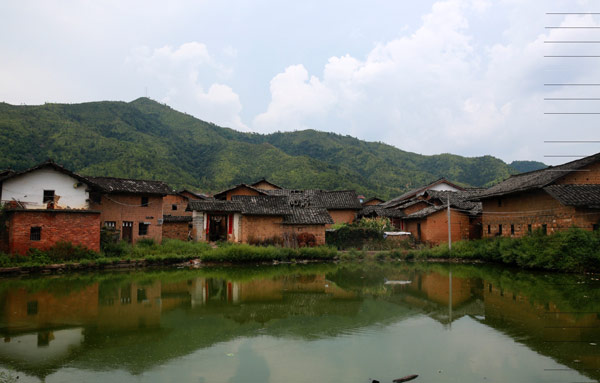Lifeline for poverty-stricken castle village
China Daily, August 3, 2016 Adjust font size:

Yangjiao Water Castle village.[Photo by Feng Yongbin/China Daily]
Standing atop a cliff, surrounded by green mountains and boasting some of China's most untouched ancient buildings - Yangjiao Water Castle has all the elements of a major tourist attraction.
Its history dates back more than 500 years to the Ming Dynasty, when construction began in 1465. Not on the stuff of fairytales, but on a swathe of temples, homes and other structures overlooking the Gong River and spanning 31-square-km across what is now Junmenling, in southern Huichang county.
By the time a 10-metre high wall encircling the settlement was complete, nearly 1000 farming families had been sent to live inside, charged with protecting their Lord from rising unrest.
Much here remains as it was centuries ago - around 2000 villagers, including young children, still live behind the heavily degraded walls, belonging to some of the poorest farming families in southeast China's Jiangxi province.
Among the residents is mother-of-four Liu Wudi, who moved here 40 years ago when she married. Her historic and humble abode, which she shares with seven other people, had been passed down to her husband through generations.
The orange-farming family earns around 60,000 yuan a year - the equivalent of just US$9,000.
Last year, they lost a third of that income - 20,000 yuan - when their trees were hit by disease.
"It's hard for common people to own a home in the city ... so we don't move," Liu told China Daily.